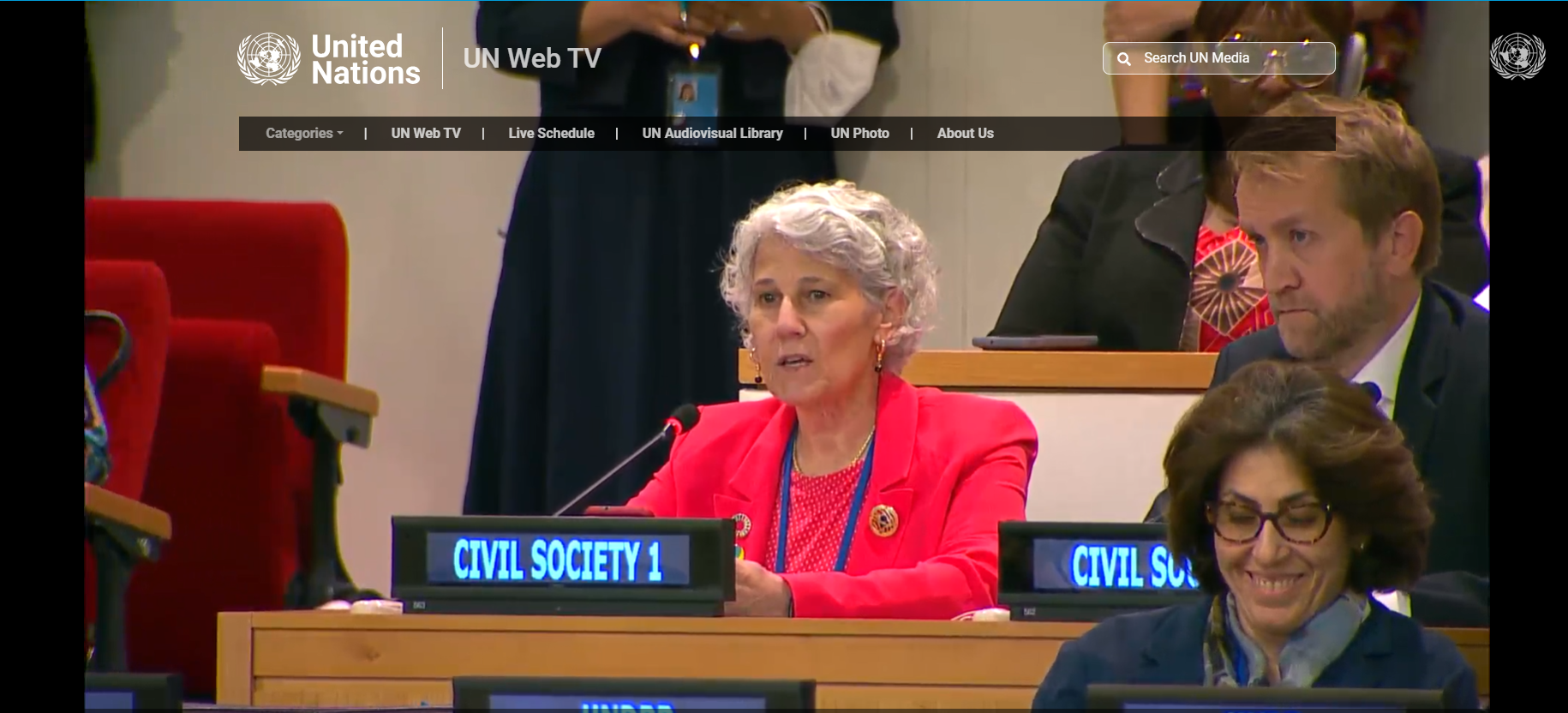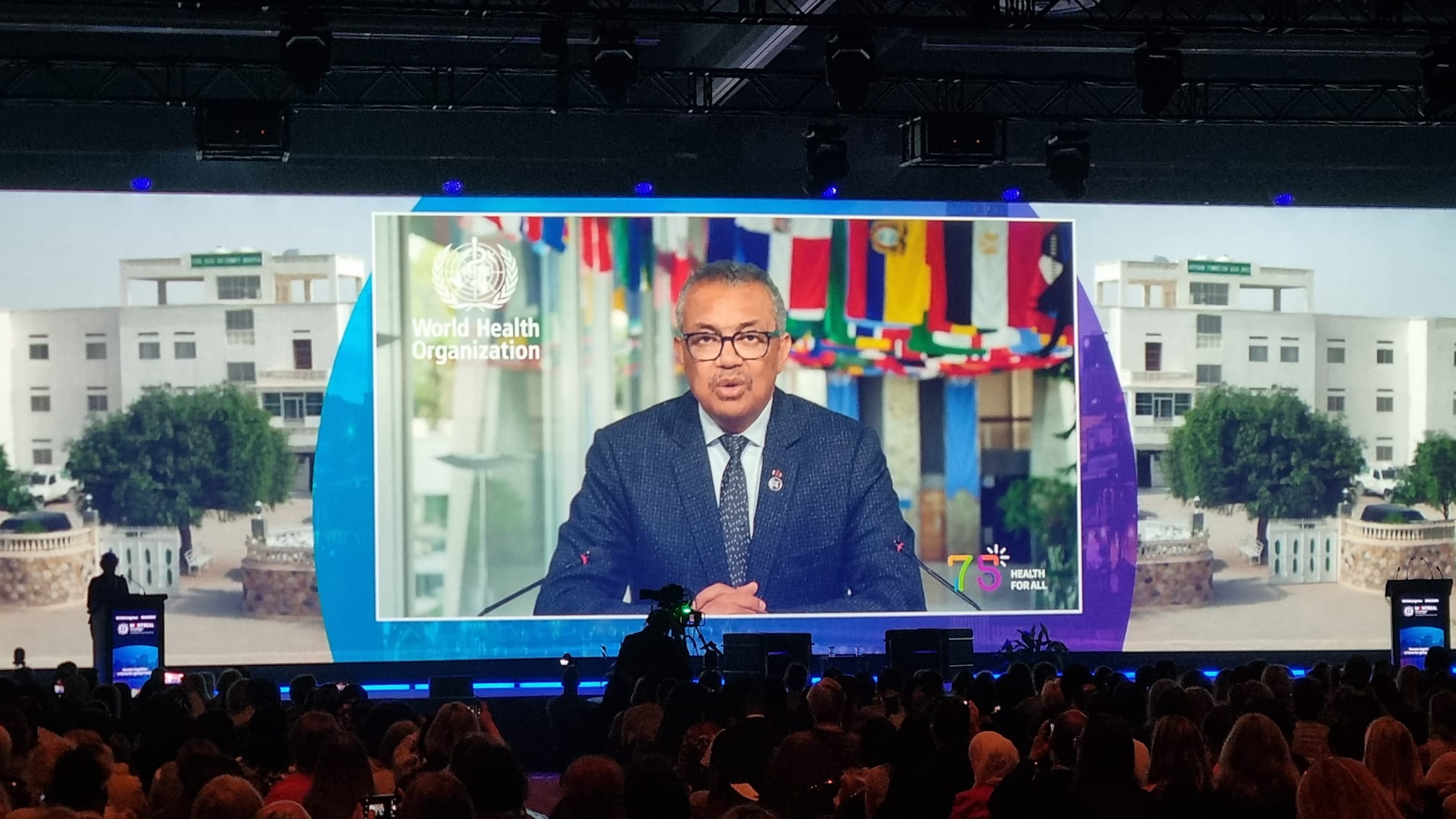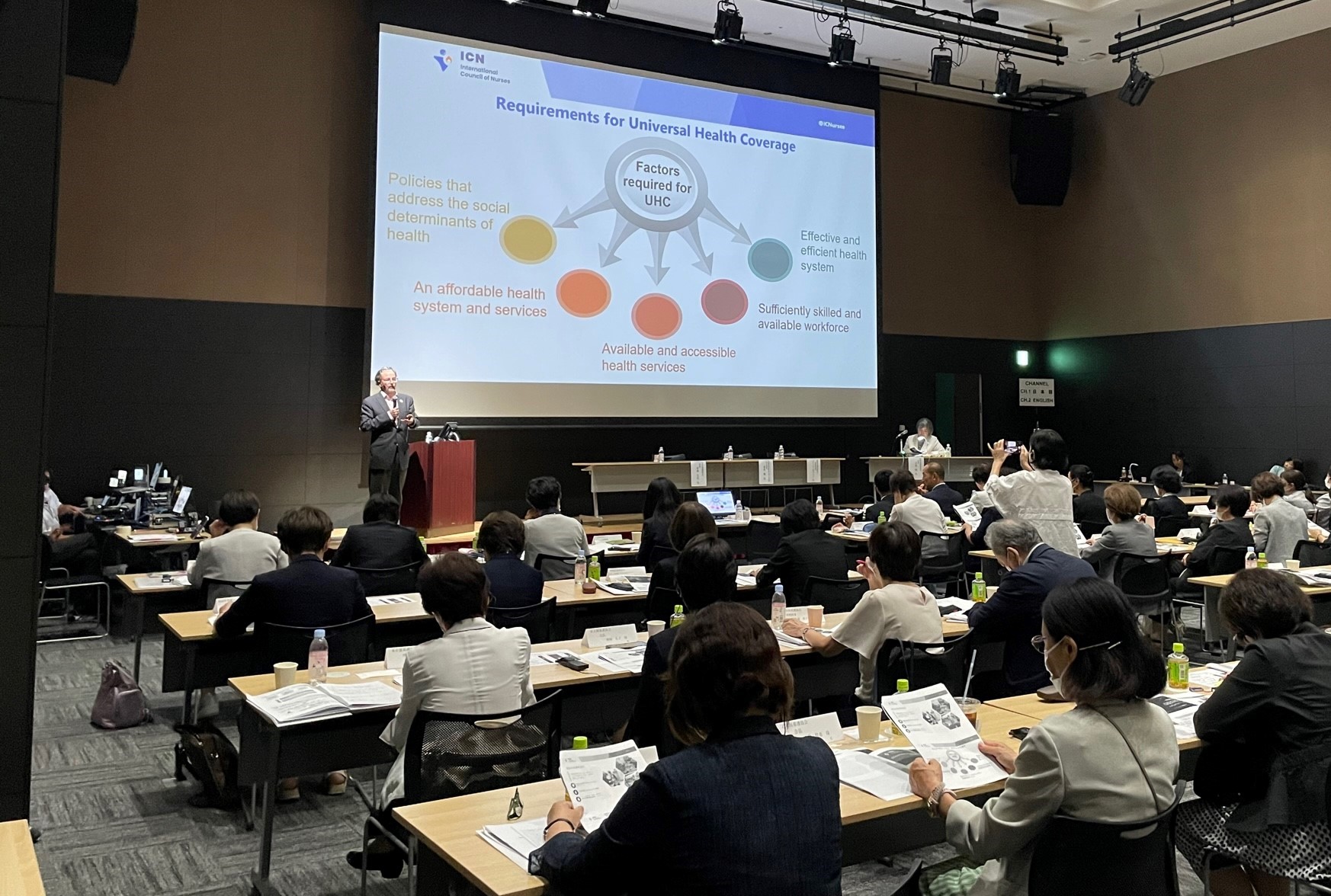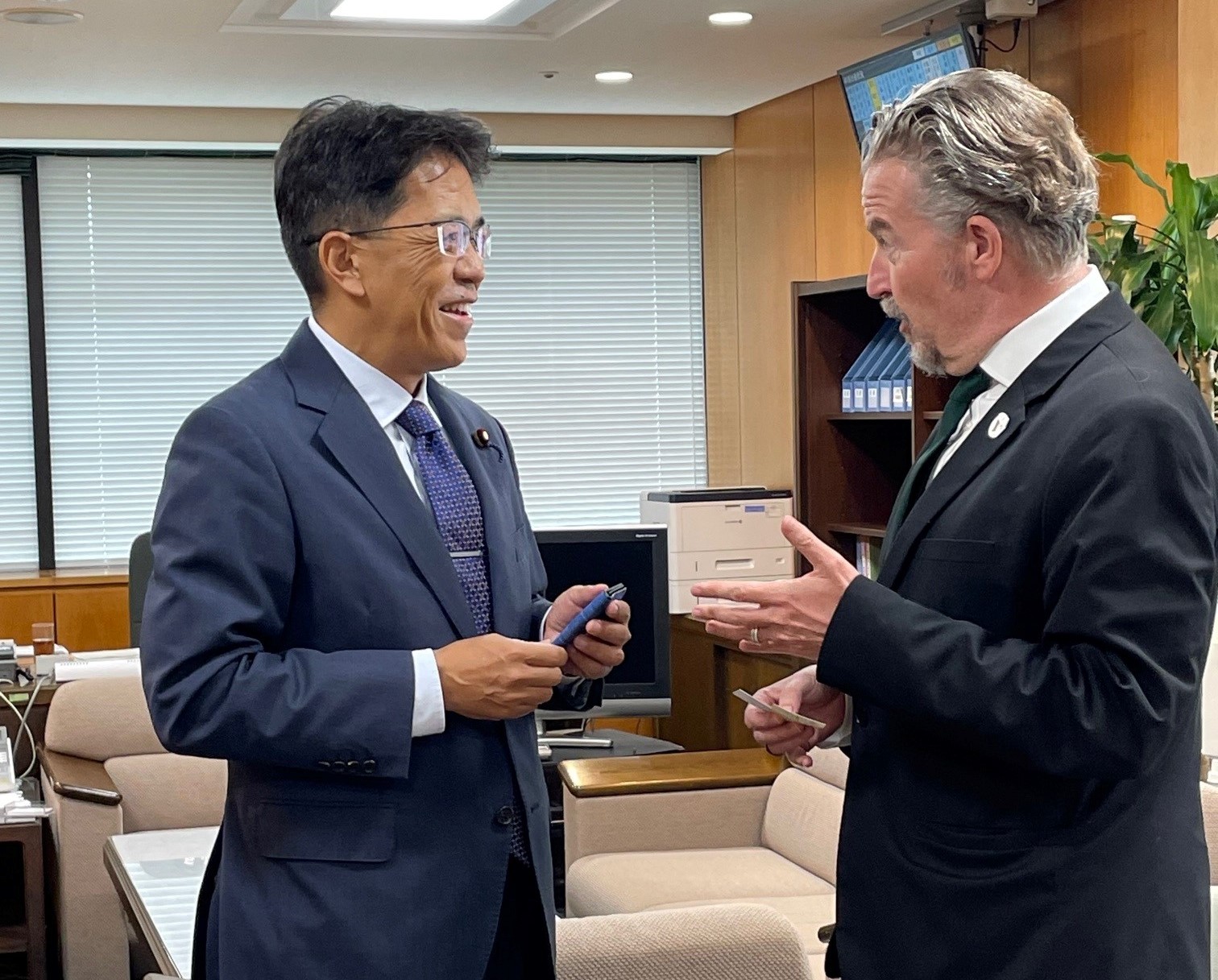ICN says UN declaration on Universal Health Care sends powerful message: “primary health care and nursing are catalysts for change”

At the United Nations General Assembly (UNGA) High-Level Meeting in New York last week, world leaders discussed critical health issues including pandemic prevention, preparedness and response and tuberculosis and approved a new Political Declaration on Universal Health Coverage (UHC).

International Council of Nurses (ICN) President, Dr Pamela Cipriano, who represents ICN as a member of the International Health Partnership’s (UHC 2030) Task Force, addressed the UNGA meeting about her concerns about the lack of investment in the global nursing workforce. Welcoming the political declaration Dr Cipriano said:
“The political declaration gives governments an opportunity to make a clearsighted and enduring change that will make a real difference by giving everyone equitable access to the health care that they need. Governments must not only make these commitments; They must follow through with the necessary investment to make these historic changes a reality that will benefit many millions of people who currently have little or no access to basic health care.”
The declaration was hailed by World Health Organization (WHO) Director General Tedros Adhanom Ghebreyesus as a vital catalyst for the international community to make the political commitments and financial investments necessary to attain the UHC target of the Sustainable Development Goals (SDGs) by 2030.
Delegates at the UNGA meeting made firm commitments in the Political Declaration to take action in their countries to accelerate progress towards the ‘UHC by 2030’ target by investing in primary health care. Building on the belief that ‘health is a human right’ delegates realized that these investments are just that, ‘investments’ and not simply cost.

Dr Tedros said that, by signing the declaration, countries had made a choice to provide UHC. But he said it would only become a reality if that choice is accompanied by budget and policy decisions that lead to investment in primary health care, “which is the most inclusive, equitable, and efficient path to universal health coverage.”
Dr Cipriano said UHC and primary health care were intimately linked, a point underscored in the new Political Declaration on UHC. Dr Cipriano said:
“Universal Health care can only be achieved through having nurses working closely with individuals, families and communities in their homes and neighbourhoods. Just about everything that makes up good primary health care is within the remit of nurses, and the countries of the world need to make the effort required to put nurses where they are needed most, and that is alongside patients in their everyday lives.”
The overall contents of the United Nations Political Declaration correspond closely with the strategic messaging of ICN in response not only to the COVID Effect but decades of under-investment. PHC has been at the heart of ICN’s interventions to the World Health Assembly, its position statements, and contributions to the Astana declaration on UHC, and evidence presented by ICN on the centrality of PHC in its recent publications and materials, including Sustain to Retain, Recover to Rebuild, the International Nurses Day resources and its Charter for Change.
The Charter lists essential actions that are needed to revitalise health care and put patients in contact with nurses where and when they need them most. It emphasises the importance of re-establishing a priority focus of health systems on public health and patient-centred primary care. ICN has further highlighted the role of nurses as the chief architects and providers of PHC on the ground through its series with the BBC, Caring with Courage.
At the meetings, the global leaders also committed to strengthen the international cooperation, coordination, governance, and investment needed to prevent a repeat of the impact caused by the COVID-19 pandemic, and to revitalize the commitments, targets and actions needed to accelerate efforts to end the global tuberculosis epidemic by 2030.
Dr Cipriano told delegates and the UNGA meetings: “There is no health without a health workforce. If we are to meet all the challenges before us, we need strong, equitable and resilient heath systems and a strong and sustainable nursing and care workforce.”
ICN has long championed PHC as the way to ensure that the most people possible gain access to the UHC they are entitled to receive. UHC is reliant on primary health care, and primary health care can only expand if there is massive additional investment in nursing jobs, because nurses are the drivers and deliverers of PHC.

Speaking after a recent visit to the Japanese Nurses Association in Tokyo which coincided with UNGA in New York, ICN Chief Executive Officer Howard Catton said it was clear that the United Nations is now recognising the critical centrality of nursing to PHC, and the inter—dependency between PHC and UHC.
Mr Catton said: “While not all nursing care is about PHC, PHC is all about nursing care. Nurses are the key enablers to UHC and this is demonstrated in our ICN policy work, exemplified by the real-life examples we have collected about how nurses are at the centre of UHC across the whole spectrum from prevention to rehabilitation, from birth to death.”
Mr Catton said that his recent visit to Japan illustrated how countries need to anticipate the extra demands of an increasingly ageing population.

“I spoke to the Japanese State Minister for Health, Labour and Welfare, Mr Miyazaki, and he certainly understands that investment in PHC is the only way to meet the needs of Japan’s increasingly elderly population.
‘PHC is the way to keep people fit and well into their old age, reducing the burden of noncommunicable diseases and freeing up people to continue to live the active lives we all want in our later years. This is underlined by a clear need to shift away from hospitalised medical models of illness to integrated people-centred models which focus on wellness, well-being and health prevention and promotion.
‘We were on the same page in agreeing the broader point that investing in nursing and health care is not only about the unarguable health benefits for people but also the economic benefits that accrue to build stable economies and strong societies. That resonates with the clear message delivered by our ICN President during her high-level meetings in New York, which has now been picked up and included in this new Political Declaration on UHC.”
Once adopted by the United Nations General Assembly, the Political Declaration on UHC will be regularly monitored to identify gaps and accelerate progress. It is due to be discussed at the next dedicated United Nations High-Level Meeting in 2027.